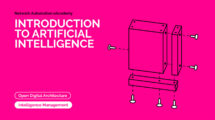As part of a wider initiative to explore the evolving use of technology in education and how NRENs can support it, GÉANT is hosting an NREN Educational Technologies and Services Workshop in Budapest in November. The second of its type, the workshop will address a number of topics: Edu services in NRENs and organisational aspects, stimulating the adoption of open standards and eduID.
Edu services in NRENs and organisational aspects
NRENs are expanding their education service portfolio and many of the new services are quite different from traditional services offered by NRENs. The focus is on joint procurement, follow-up of major international suppliers, influence and development of major solutions for an international education market, risk management, work process collaboration, facilitation of collaboration on training and experience sharing between universities, development of joint integrations, etc. The workshop will seek to answer questions such as:
- What tasks should NRENs tackle within edu services?
- What distinguishes these from the core NREN activities?
- Where to draw the line between traditional NREN services and edu services, g. media services?
- What are the advantages and disadvantages of organising edu services in a separate body or company?
Stimulating the adoption of open standards
In higher education, ICT is increasingly used for collaboration and communication purposes. But not every institution uses the same software. Interoperability provides improved compatibility between different systems, and makes it easier to share data. Therefore, using standards allows data to be exchanged easily, securely and reliably, which benefits the quality of the exchange. It is also more economical and efficient to create and maintain a single interface and to avoid supplier dependency. Reaping the full benefits of standards requires widespread adoption; applications can only be interfaced easily if as many parties as possible commit to the standards. As NRENs we can play an important role in stimulating the adoption of standards: firstly, by encouraging the adoption of standards by suppliers who work across borders, and secondly by promoting the standards that are important for future-proofing education to institutions.
eduID
In the society of the future, boundaries between institutions fade. Students want to study outside of their own institutions, even internationally. They are interested in a variety of different courses and want to combine subjects that cannot be found within a single institution. Moreover, educational organisations are offering joint programmes.To facilitate mobility, students must be uniquely identifiable across institutions. Ths allows different organisations to be certain that they are dealing with the same student and can, for example, share a student’s academic results. In the Netherlands, the Dutch NREN SURF is creating a disruptive concept called eduID. eduID is lifelong available, owned by the student and starts out as a (self-created) basic identity. Assurance can be increased and enhanced by authoritative sources, such as institutions or the government. Besides the Trust & Identity aspects of such an identity, eduID has a deep impact on many educational processes inside and between organisations. The workshop will explore the possibilities of cooperating within GÉANT to align international eduID initiatives.
eduBadges
Badges are digital symbols (images) that show that an individual has acquired certain skills or knowledge. Open Badges enable micro-credentialing and therefore are the new digital currency for learning, which fits well within a rapidly changing educational system. There is an increasing demand for a more transparent and flexible curriculum, which better suits the personal ambition and qualification level of the individual student and meets the needs of employers. SURF, the Dutch NREN, is currently running a pilot on eduBadges with selected universities in the Netherlands. Why is this important for all NRENs? Why should NRENs discuss this and collaborate internationally? How can collaboration help to build a healthier and more sustainable service? What should be our next steps? These are some of the questions that the workshop will endeavour to address.
To find out more about the workshop click here







